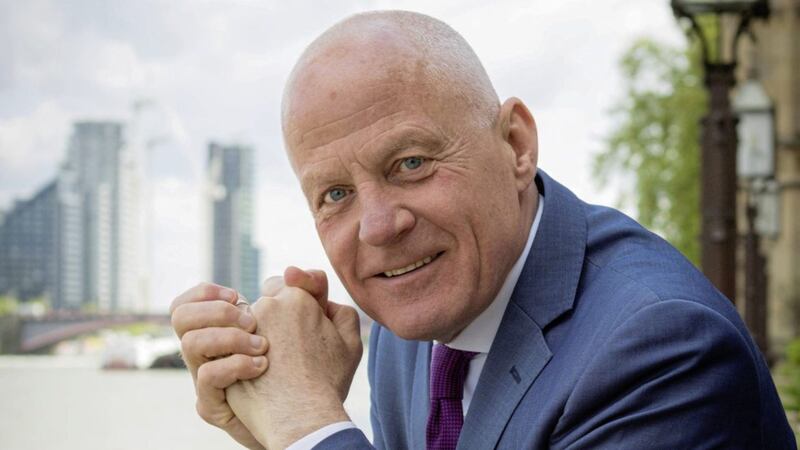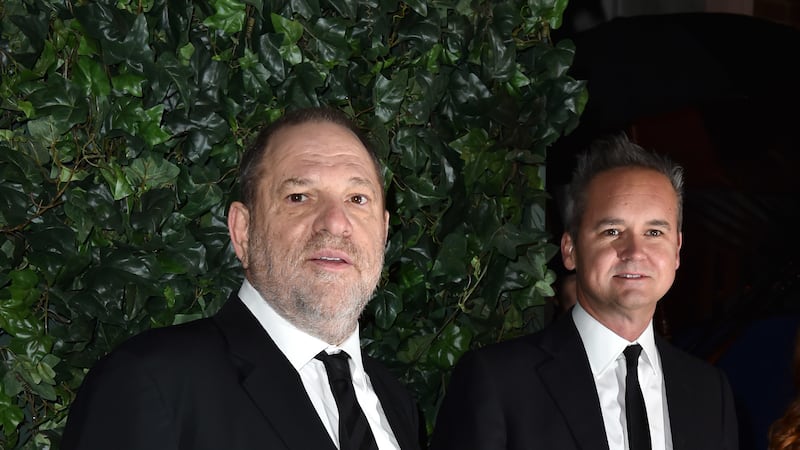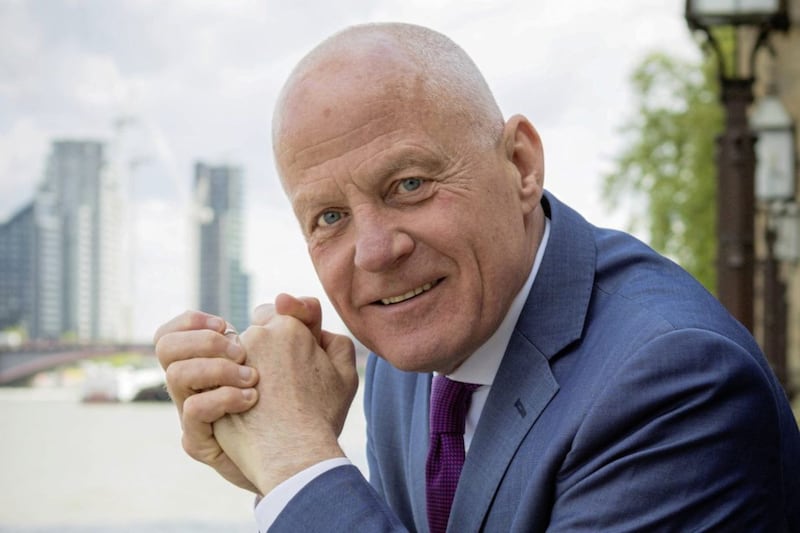MICHAEL Cashman, or Baron Cashman of Limehouse – best known to many as Colin Russell from EastEnders, who made waves with the first gay kiss on a British soap more than three decades ago – has packed a huge amount into his 69 years.
His roller coaster memoir, One Of Them, charts his course from his working-class East End childhood, the sexual abuse he suffered, his early years in West End theatre, TV fame in and political activism – to a place in the House of Lords just four days after the death of his long-term partner Paul Cottingham.
"I've got the most amazing life in the world today but the one person who is missing is the one person who would make sense of it all. He would turn the joy into stupendous joy," he reflects.
Today, he reveals it was Cottingham's death which prompted him to write the book. They met in 1983 at a party hosted by fellow EastEnders actress Barbara Windsor when Cottingham, then 19 and 13 years Cashman's junior, was a Butlin's Redcoat.
They were together for 31 years and entered into a civil partnership in 2006.
In early 2011, Cottingham was diagnosed with, angiosarcoma, a very rare cancer.
"We were thrown into this void by this dermatologist and left there," Cashman recalls. "Finding our way out of there was the hardest. We were in this black chasm and there was no way out."
While Cottingham was having treatment, in another cruel twist of fate, Cashman was diagnosed with kidney cancer. Both underwent treatment, but Cottingham passed away in late 2014.
"The last three weeks of Paul's life were incredibly difficult but most people recognise that at that time, you live moment to moment. You try not to predict the end but you know the end is coming.
"He gave me the most amazing gift when the consultant told him she could do no more and she left, and he said to me, 'Well now we know and I'm ready'. He released me from his fear of death."
Cashman reveals in the book that after Cottingham's death, he started self-harming and eventually had bereavement counselling.
"With any sense of profound grief, you question who you are and the future. To look back over the life I'd had with Paul, it was staggering to realise how much he had given me. Without him, I don't think I would be where I am now."
He still misses him terribly.
"It's been difficult every day. I have a battle because of his absence. Each day, when I wake, his name is the first word I say and the last word I say when I go to bed.
"When I come home at night, I shout, 'I'm back!' What is hard is not being able to share the amazing things that happen to you. He loved life. I don't have that one person to make sense of it all."
But far from being a misery memoir, the book is peppered with delicious anecdotes of his encounters with celebrities including Joan Collins, David Hockney and Elton John and his continuing friendship with Sir Ian McKellen, with whom he founded LGBT+ rights group Stonewall and who lives just down the road from him in east London. He also lifts the lid on life in EastEnders.
"When I first joined the show it was a very dark period in this country. Aids and HIV was depicted as the gay plague. People were not out about their sexual orientation because it brought about a whole range of discrimination and stigma.
"I got some nasty letters. When I came out against the anti-gay law that Thatcher's government brought in, I received death threats and I was put on the hit list of a far right organisation. Some of the attacks I got in the press were deeply unpleasant and on two occasions we had a brick through our window."
The first gay kiss in 1987, when Colin gave boyfriend Barry a peck on the forehead, prompted a deluge of complaints.
"The gay kiss outraged politicians and moral campaigners, but I got a huge amount of support from within the BBC and from other cast members.
"But I do remember that when I got a letter together against this anti-gay law, two senior members of the cast refused to sign it because they didn't want to be associated with homosexuality." He has never named them.
"Brilliant Leslie Grantham, Dirty Den, was the first to put his name on that letter. He wasn't worried about the association with a gay cause."
Cashman joined the campaign trail and marched for equality and soon became swept up into politics alongside other well-known actors including Ben Elton, Sue Johnston and Lenny Henry, to support Neil Kinnock in the general election campaign.
He returned to the hit soap for one episode last year – when Colin went back to get Dot Cotton to come to his wedding.
"That enticed me back. I adored June Brown. We worked together brilliantly."
So, is he likely to return to Albert Square again?
"I would never say never but because politics matters so much, you have to commit to it. If I went back into acting, it would mean walking away from politics and I can't see that happening."
A Labour Party member for 45 years until his resignation last year (over anti-semitism and indecision over Brexit), Cashman served as an MEP for 15 years and was on Labour's National Executive Committee.
How far has the LGBT cause come?
"I never believed that the changes that have happened in the last 30 years would happen in my lifetime. We've been on an amazing journey and we've achieved an amazing amount. Now, we've got to defend it."
Becoming a life peer in the House of Lords, where he sits for three or four days a week, has been his saviour, he says.
"When I think about going into the House of Lords four days after Paul died, I still don't know how I did it. It's just one foot in front of the other. It's five years since he died.
"I saw my dear friend Sheila Hancock a few weeks ago and asked her, 'Does it get better?' She said, 'Yes, it does'. And she said, 'I think sometimes the things I now do because John [Thaw] isn't alive would drive him mad'."
Does he hope to find love again?
"Yes. To be able to share your most intimate thoughts, fears and hopes with someone without recrimination or hesitation is the most amazing luxury in the world. I had that for 31 years with someone who knew me better than I knew myself. If you don't hope for that, what is the point of it all?"
:: One Of Them: From Albert Square To Parliament Square by Michael Cashman is published by Bloomsbury, priced £18.99.





